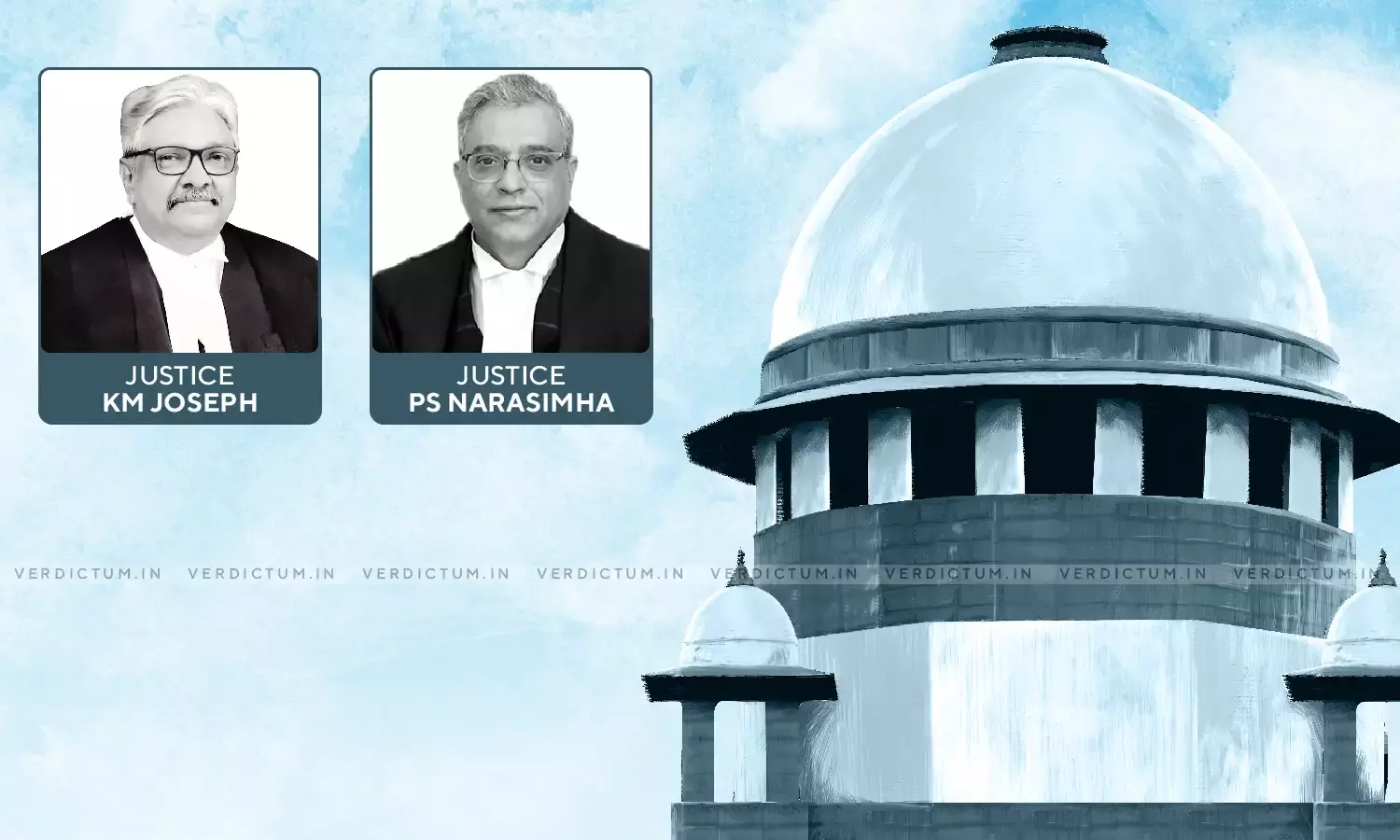Registration Act Does Not Contemplate Inquiry Into Whether Person Who Executed Document On Behalf Of Principal Had A Valid POA - SC

A two-judge Bench of the Supreme Court comprising of Justice KM Joseph and Justice PS Narasimha has held that Section 32(c) r/w Section 33 and Section 34(2)(c) of the Registration Act are interrelated and they would have no application in regard to the document presented for registration by a power of attorney holder who is also the executant of the document.
The Court held, "For reasons, which we have indicated, Section 32(c) read with Section 33 and Section 34(2)(c) are inter-related and they would have no application in regard to the document presented for registration by a power of attorney holder who is also the executant of the document. In other words, there is really no need for the production of the original power of attorney, when the document is presented for registration by the person standing in the shoes of the second defendant in this case as he would be covered by the provisions of Section 32(a) as he has executed the document though on the strength of the power of attorney. To make it even further clear, the inquiry contemplated under the Registration Act, cannot extend to question as to whether the person who executed the document in his capacity of the power of attorney holder of the principal, was indeed having a valid power of attorney or not to execute the document or not."
In appeal before the Supreme Court, was the judgment of the High Court in a second appeal that reversed the concurrent findings rendered in a suit (filed by the first Respondent). The Appellant being the second Defendant had filed the appeal in this case.
The suit property belonged to Plaintiff and was in his possession. An oral agreement was entered into for the sale of the property on a consideration of Rs. 55,000/-. Plaintiff had averred that when he came on leave, the first Defendant could not arrange the money and asked for further time.
Plaintiff executed a special power of attorney in favor of the second Defendant for selling the property for the aforementioned amount. The negotiation fell and the second Defendant surrendered the original PoA to Plaintiff. Plaintiff told the first Defendant that the same was canceled.
It was averred that the second Defendant applied for a copy of the PoA and fraudulently in collusion with the first Defendant executed sale deed for Rs. 30,000/. The second Defendant could not execute the sale deed in the absence of the original PoA and the sub-registrar was supposed to verify the aspect from the second Defendant under the provisions of the Registration Act. It was averred that the sale deed was without authority and the second defendant was not competent to transfer the possession.
Plaintiff filed a suit for declaration and permanent injunction that he is the owner in possession of that property and sale in favor of the first Defendant was null and void.
The Trial Court proceeded to decline the relief of declaration by way of permanent injunction as the Plaintiff was not the owner in possession but the Suit for a rendition of accounts from the second Defendant was decreed.
The First Appellate Court found that there was a valid sale deed and that the PoA was cancelled was unsustainable. It was found that the sale deed was executed.
The High Court set aside the findings of the Court below and decreed the suit. Hence, the appeal.
The Court noted that the argument of Plaintiff that for a proper and legal presentation of a document, the first Defendant was obliged to produce the original PoA does not appear to be sound.
The Court made the following crucial observations:
"In other words, when a person empowers another to execute a document and the power of attorney, acting on the power, executes the document, the power of attorney holder can present the document for registration under Section 32(a). Section 32(a) of the Registration Act deals with the person executing a document and also the person claiming under the same. It also provides for persons claiming under a decree or an order being entitled to present a document. Section 32(b) speaks about the representative or assignee of 'such a person'. The word such a person in Section 32(b) is intended to refer to the persons covered by Section 32(a). Finally, Section 32(c) provides for the agent of 'such a person' which necessarily means the persons who are encompassed by Section 32(a)."
The Court noted that Section 32(a) cannot be read with Section 33 of the Act. The Court noted that without a valid presentation of the document, the registration would be illegal, however, the second Defendant having presented the sale deed as an executant, the presentation and registration cannot be questioned.
The Court then dealt with the evidence on record and held that the High Court had overstepped its limits by reappreciating the evidence; a task which must be left to the First Appellate Court.
The Court concluded that the impugned judgement of the High Court cannot be sustained. The appeal was therefore allowed and the impugned judgement was set aside./
Click here to read/download the Judgment

